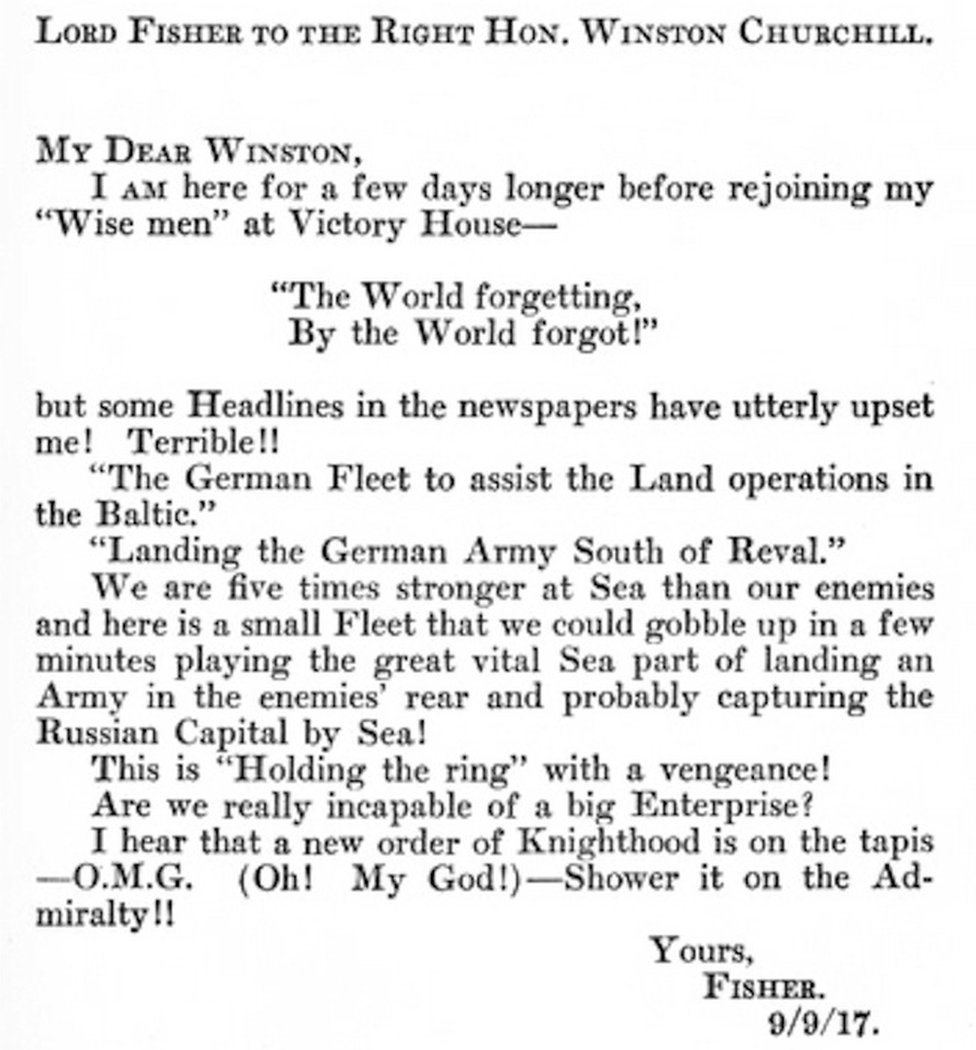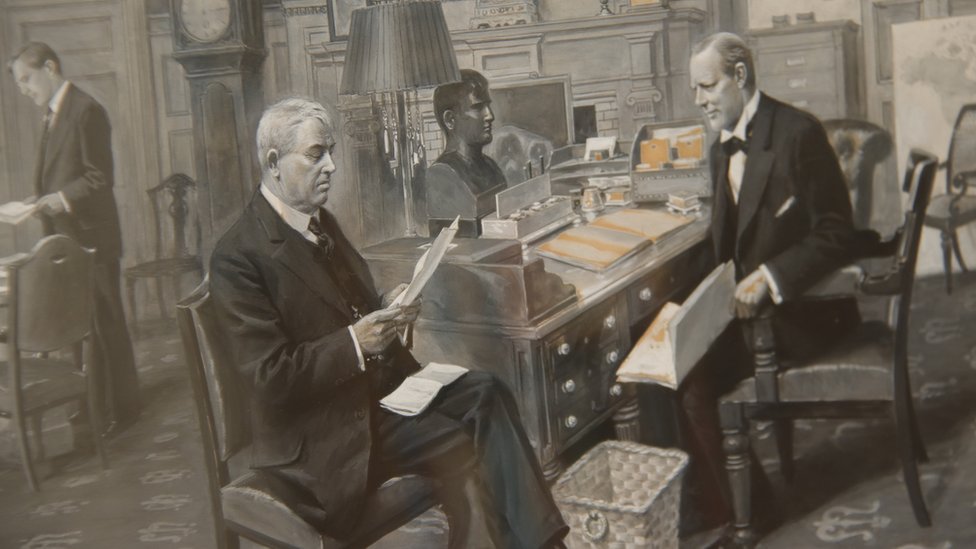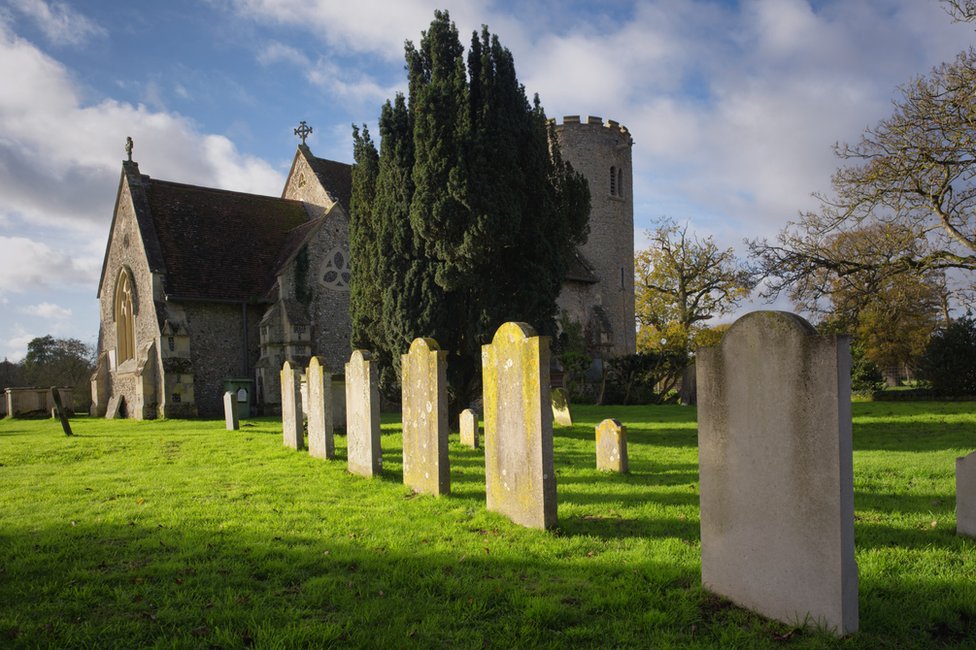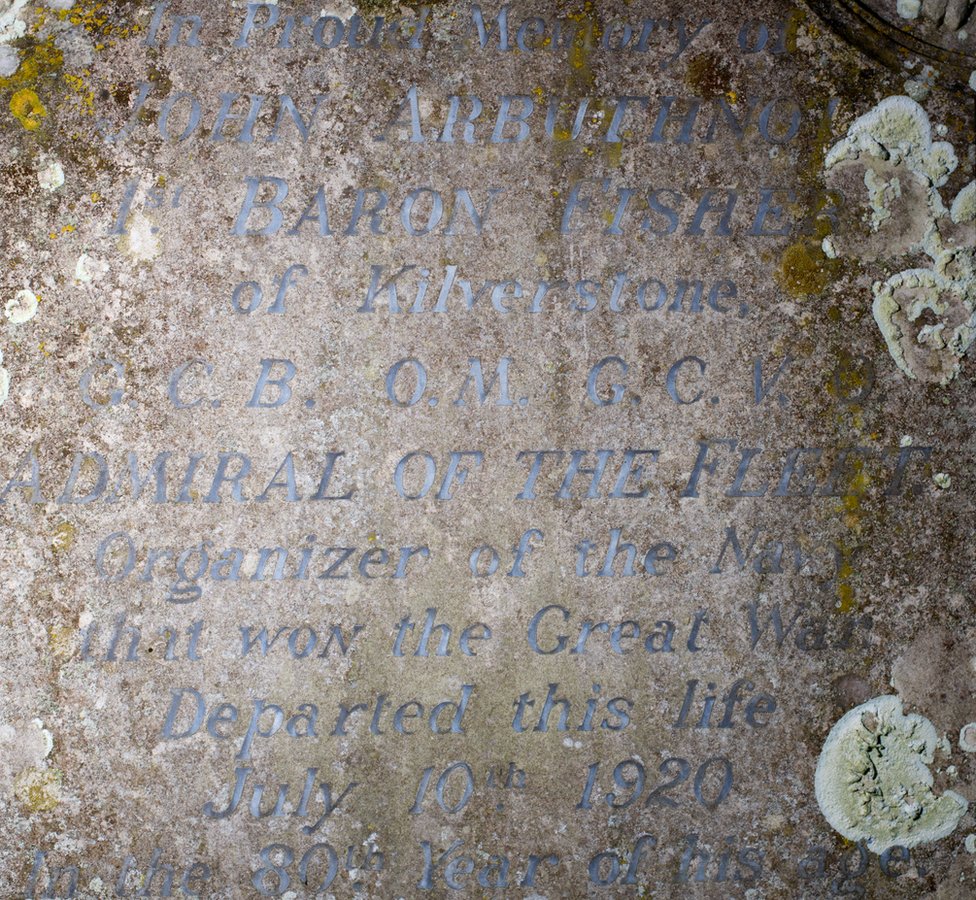The creator of the abbreviation ‘OMG’ would have loved Emojis
The following piece was inspired by and entry in Snopes about the derivation of the term OMG. How interesting, I thought. Then I realised the resting place of Jacky Fisher was near Thetford in Norfolk, which is part of my eastern region patch. The next call was to his great granddaughter Penelope which paved the way for this piece on the BBC News website.
OMG is a staple of text messages and social media posts across the world. It was first used by a World War One admiral whose extraordinary life and way with words are firing the imagination of his filmmaker great-great-granddaughter.
In a quiet graveyard, a short walk across the lawns of a country house in Norfolk, lie the remains of John Arbuthnot Fisher, 1st Baron Fisher, who twice held the role of First Sea Lord.
Fisher, known as “Jacky”, is credited by the Oxford English Dictionary (OED) with first using the abbreviation “OMG”, when, in a letter to Winston Churchill in 1917, he wrote: “I hear that a new order of Knighthood is on the tapis—O.M.G. (Oh! My God!)—Shower it on the Admiralty!!”
According to the OED, it means “causing or characterized by a reaction of astonishment, excitement, etc.; that might cause one to exclaim ‘oh my God!'”
Now his great-great granddaughter Penelope, who owns production company Trident Films, is trying to make a film about his life, under the working title Sea Lord.

She first learned of her ancestor’s role in OMG in her early 20s. For her, it was merely yet another interesting detail of a life that had long been a source of fascination.
Born in 1841 in Ceylon, now Sri Lanka, Lord Fisher joined HMS Victory at Portsmouth in 1854. He ascended rapidly through the ranks, achieving the highest-ever Royal Navy score for navigation in his lieutenant’s exams.
He was, by all accounts, a man who demanded to be heard, and one “who didn’t suffer fools lightly”, according to his descendants.
You may also like:
“I remember learning about him when I was doing a project at school when I was about 13,” says Penelope.
“It lit up my imagination. I was enthralled with who my ancestor was.
“I found him to be a remarkable character. He was well known for his use of abbreviations and his clever use of words. And I found his relationship with Churchill really interesting – they seemed to have had quite a unique relationship.
“From my research, I realised they both clearly knew and understood the power of words and how they were going to be remembered in history.”
For Penelope, Jacky’s dextrous and agile use of words has added piquancy because she is dyslexic.
“I’ve struggled with reading and writing,” she says.
“In that sense we are very different, and in that sense I find him all the more remarkable.
“But I also find him inspirational in that he rose from nothing, really, as a 13-year-old in the Royal Navy to become the First Sea Lord.
“He showed overcoming things was possible. He worked his socks off to get where he did. He inspired me to try and try.
“I don’t think people understand what it is like to really struggle with reading and writing.”
She wonders whether Jacky, who frequently used abbreviations, might also have had some form of dyslexia.
“Dyslexia is definitely hereditary and he definitely could have been dyslexic. One thing I’ve learned is that no one dyslexic person is exactly the same as others.
“I believe a lot of his abbreviations came from his brain moving too fast.”

Asked what Jacky would have made of OMG being a staple in the lexicon of text, she says: “I think he would have loved it. He loved all forms of communication and was a big fan of wireless communication.
“He would have absolutely loved emojis. He would have loved Twitter. He might have been a bit Trumpesque with his use – not necessarily in what he said but in how he said it, using the format to get what he wanted to say out there.”
Might his place as the creator of OMG ever be called into question? Unlikely, unless some evidence of prior use emerges.
Fiona McPherson, a senior editor at the OED, says: “We never close the door on any entries, but in order to turn our attention to other words we do have to take a reactive approach to such updates.
“This will always be led by any new evidence emerging.
“Online publication has given us the freedom to update as and when needed, which means some entries will be revisited and updated repeatedly, as new evidence presents itself or cultural shifts effect changes in meaning and usage.”

Given the widespread use of OMG in both speech and text, does Penelope ever feel the need to share her family’s role in its origins when she overhears it?
“Er, no,” she says. “I don’t think many people realise OMG came through the Admiralty.
“But it does give me a little chuckle when I hear it. I don’t tend to hear it much in my every day life but it sometimes comes up when we’re watching television.”

Acronyms and abbreviations with unexpected histories

- Taser: It stands for “Thomas A Swift Electric Rifle”, after the inventor, Jack Cover, decided in 1974 to name it after his favourite children’s book character, Tom Swift
- Spam: While the origins of the name are, apparently, shrouded in secrecy, it is thought to be an acronym of either “Special Processed American Meat” or even just, “SPiced HAM”. A classic 1970 Monty Python sketch, set in a cafe where tinned meat is pretty much the only thing on the menu and relentlessly promoted, is acknowledged to have inspired its modern use as the term for unsolicited electronic communication
- IMHO: Another favourite abbreviation of our times, meaning “In my humble / honest opinion”, is nearly 40 years old. The OED says its first recorded use related to the relative merits of two brands of video tapes, when a poster on a Usenet group declared: “Sony and Maxell tapes are, imho [in my honest opinion], almost indistinguishable in quality, and are the only kind I buy now.”

And what might Jacky have made of the success of his phrase?
“He would have loved it. He would have loved to have seen how it is used,” says Penelope.
Her reaction on learning her ancestor gave the world OMG?
“No, I didn’t respond with an OMG, though I do use it quite a lot,” she says.
“I wish he had trademarked it – I could easily fund all the films I want to make if he had.”
Catch up on Laurence Cawley’ Instagram Feed
The piece you have read thus far might well have ended here, but for that stroll over to Jacky’s gravestone, accompanied by the current Lord Fisher, Patrick.
He is not a keen exponent of the phrase “OMG” and points out his great-grandfather’s favourite term was actually “Buggins’s turn”. The phrase, according to the OED, means “the principle or practice of awarding a promotion, job, etc., to a person because it is considered to be his or her turn, rather than on the basis of merit.”
And its first known use? Yes, once again, it seems it was by Jacky Fisher, who in 1901 wrote: “Favouritism was the secret of our efficiency in the old days… Going by seniority saves so much trouble. ‘Buggins’s turn’ has been our ruin and will be disastrous hereafter!”

The inscription on Jacky’s gravestone is obscured by a frosting of lichen.
But there, on the fifth line, are his post-nominal initials: G.C.B (Knight Grand Cross of the Order of the Bath), O.M. (Order of Merit), G.C.V.O (Knight Grand Cross of the Royal Victorian Order).
“You see, he did have OMG on his headstone,” says the 4th Baron Fisher.
“Of course,” he adds wryly, “it is not quite the same OMG.”

